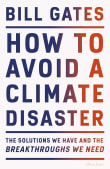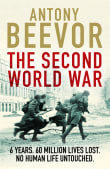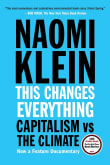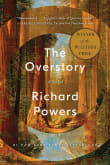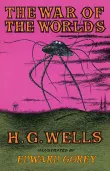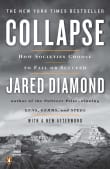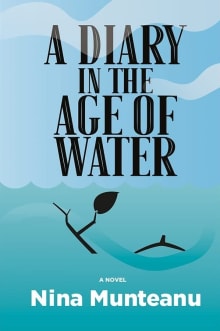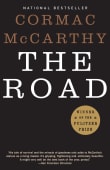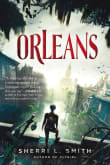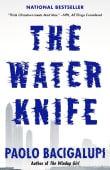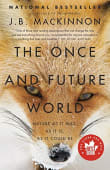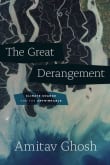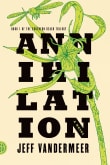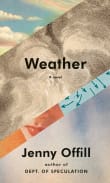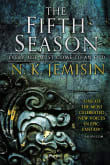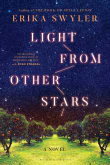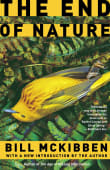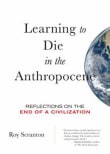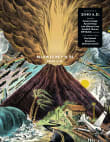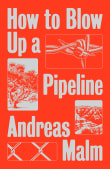The Uninhabitable Earth
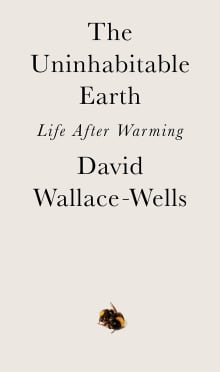
Book description
**SUNDAY TIMES AND THE NEW YORK TIMES BESTSELLER**
'An epoch-defining book' Matt Haig
'If you read just one work of non-fiction this year, it should probably be this' David Sexton, Evening Standard
Selected as a Book of the Year 2019 by the Sunday Times, Spectator and New Statesman
A Waterstones…
Why read it?
9 authors picked The Uninhabitable Earth as one of their favorite books. Why do they recommend it?

This book shook me to my core. I felt so frightened by its vision of a world destroyed by global warming that I became even more determined to help get climate deniers out of power.
I know that other people who read this book were equally inspired to learn more about climate change or even join the climate movement. It’s really one of the most influential books of our time.
From Genevieve's list on understand climate change.

I opt for this over some other options because of its frightening clarity on the consequences of unabated human-generated greenhouse gas emissions. With business as usual, we are speeding towards a 4-degree Celsius temperature increase by 2100, about one lifetime away. This increase would make large parts of the planet uninhabitable due to rising seas, extreme heat, and more. Already, climate change is taking its toll.
Wallace Wells explores a long list of devastating effects, including heat death, hunger, drowning, unbreathable air, wildfires, disasters that are no longer natural, like outsize tornados and hurricanes, lack of fresh water, dying oceans…
From Caro's list on understanding and acting on climate change.

A well-written erudite work that explores all aspects of civilization relative to the degree and rate of global warming. It illustrates a broad and compelling narrative of all the plant aspects, from Hunger to Policy. It uses language that is incredibly descriptive, and very relatable to bring the impact of climate change home to readers who may be unfamiliar with all of the complexities of climate change.
From Lewis' list on climate and plants, from forests to farms.
If you love The Uninhabitable Earth...

From Bruce's list on the climate change debate to avoid a catastrophe.

Like my previous recommendations, this book started out as an essay (2017) in the popular press. So it is highly accessible and well written. It’s also very smart. It provides deep dives into the most pressing worries of climate change researchers (e.g., methane emissions), efficiently describing results that are undersold or ignored in all of the IPCC Reports to date. If you only have time to read one book on climate change, this is it. Or read the article of the same title online for a quick taste.
From Todd's list on how bad climate change is for life on Earth.

David Wallace-Wells’s book is the only non-fiction on my list - perfect for you if you’re finding yourself trying to get a more factual grip on exactly what will happen to the world as climate change continues unabated. But rather than presenting you with a list of statistics, Wallace-Wells explores different scenarios with a frankness that makes reading his book feel like talking to your most informed friend, someone who knows what questions you might have and is eager to answer them. Early sections of this book are especially hard-hitting; when I read it I had to take breaks every…
From Rory's list on the grief of living with climate change.
If you love David Wallace-Wells...

This book is a challenging read. It started as an article in New York magazine in July 2017 that became the most read article in the magazine’s history. The book begins in a similar way to the article – “It is worse, much worse, than you think.” – and then proceeds to lay out the worst-case scenarios for climate change, literally scaring the reader to death. The article provoked an excellent letters-to-the-editor discussion on whether it is responsible to do this and Wallace-Wells stands his ground, arguing that we have to give people the full scope of what kind of…
From Andrew's list on the future in a climate changed world.

My other choices were fiction; this one is not. Journalist Wallace-Walls assembles the scientific data on anthropogenic climate change and comes to an inescapable conclusion: it’s happening, and we can’t stop it from affecting us. What we can do is decide how bad it’s going to get, and that means making some tough choices in the next decade or two. As he sums up: “What happens, from here, will be entirely our own doing.”
From Joshua's list on environmental catastrophe.

Amidst the perpetual blizzard of conflicting information, statistics, politicised issues, interminable arguments, denial and debunking, forecasts and predictions... amidst the saturation and exhaustion... of all that fills our small, overstuffed minds when we try to comprehend manmade climate change, WE all now have THIS BOOK. And everyone on the planet should read it.
I've read dozens of books about the consequences of manmade climate change across two decades, but this is the best of them. It's current, it's terrifying, it may leave you staring into a space in which you can imagine the gradual, inexorable end of civilisation, most of…
From Adam's list on Armageddon and our fascination with it.
If you love The Uninhabitable Earth...
Want books like The Uninhabitable Earth?
Our community of 12,000+ authors has personally recommended 100 books like The Uninhabitable Earth.



